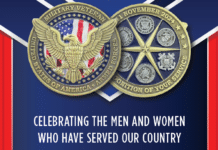Despite freezing rain and slippery roads, the annual summit to end veteran homelessness drew about 200 people on Tuesday to the Armed Forces Reserve Center in Middletown.
The event is aimed at sharing progress and new details about partnerships and housing initiatives that help to house homeless and vulnerable veterans.
A statewide goal to end veteran homelessness by 2015 is the most ambitious work the Veteran’s Administration Connecticut Healthcare System ever has set out to achieve, according to Director Gerald Culliton.
“We have an audacious goal,” said Culliton. “This summit has become such an essential part of what we need to do to end homelessness.”
In 2009, President Barack Obama and VA Secretary Eric K. Shinseki announced the goal of ending veteran homelessness by the end of 2015. Together with partners and supporters nationwide, VA is determined to meet that challenge through the Homeless Veterans Outreach Initiative, an unprecedented commitment to those who served the nation but lack safe, secure housing.
“We jumped on the bandwagon, and we feel we are going to do it,” said Lt. Gov. Nancy Wyman. “We might be small but we are mighty. If we put our mind to it, Connecticut can do anything.”
If a person becomes homeless, it’s not easy to get a job or put food on the table without a roof over your head, said Wyman. “Let’s offer them the dignity of living in a house.”
State officials are willing “to do everything in their power” to achieve this goal, Wyman said.
Laurie Harkness, director of the Errera Community Care Center, said that an even bigger goal would be to end homelessness in the state, period.
“We can do it and we will do it,” said Harkness. “We have to work together in partnership to make this a reality.”
The statewide goal is to end veteran homelessness “to a number, but it’s also to make sure we have the services and connections” in place to catch others, and to create the infrastructure to keep it from happening in the first place, said Culliton. “We can do this.”
Even though the VA is the second largest federal entity, behind the Department of Defense, it can achieve a lot, but not everything, said Culliton. The support of other non-profit and private organizations is required.
This year, part of that plan is to bring private landlords into the fold.
This is the first time we had a breakout for private landlords to help veterans,” said Maureen Pasko, a social worker for the VA. “We want to open the pool and see who else we can pull in.”
More housing is needed across the state, said Pasko. While the New Haven area has more housing connections, there is still a struggle to find housing in other areas.
“We have a big goal in front of us, and that is to figure out how in the next 13 months, we in Connecticut are going to end homelessness among veterans,” said Harkness. “I think and know absolutely it can be done, all of us together working hard.”
Although the VA is “not historically a housing program,” it has “other tools in its box” and works with 16 housing providers throughout state, Harkness said.
The solution is community based, she said.
“Our goal is to house veterans and to have them be successful,” said Pasko. “Some will need more help than others.”
“There’s no wrong door to enter, people can access help in many ways,” said Harkness, listing outreach efforts in the community and at soup kitchens, a national 24/7 hotline, among other resources.
Other services, like assistance provided by the Connecticut Veterans Legal Clinic can help to remove barriers to a job, housing and other areas for a successful life. The clinic has four, soon to be five full-time lawyers. They also work with the Conn. Bar Association which includes 250 pro bono lawyers throughout the state.
The Connecticut Heroes Project is a campaign that is producing a comprehensive plan to mobilize private sector resources.
More than 500 veterans are expected to enter homelessness this year. These are younger veterans home from wars in Afghanistan and Iraq, female veterans, and those with chronic illness.
It’s time to put aside the bureaucracy and turf wars, and put the good of our veterans ahead of individual interests, according to Behrman.
Between 2010 and 2014, there was a nearly 33 percent reduction in Veteran homelessness, according to CHP. To build on this progress, the VA has increased programs and funding to help veterans who are homeless or at risk of becoming homeless. In fiscal 2014, the VA dedicated $1.4 billion to specialized homeless programs and $5.4 billion to health care for veterans who are homeless.
The statewide goal is “audacious and achievable,” said Behrman. “It’s going to be very hard, we have a long way to go.”
Through partnerships, “We have the chance to do something historic,” Behrman said.
All content herein is owned by author exclusively. Expressed opinions are NOT necessarily the views of VNR, authors, affiliates, advertisers, sponsors, partners, technicians, or VT Network. Some content may be satirical in nature.
All images within are full responsibility of the author and NOT VNR.
Read Full Policy Notice - Comment Policy






























